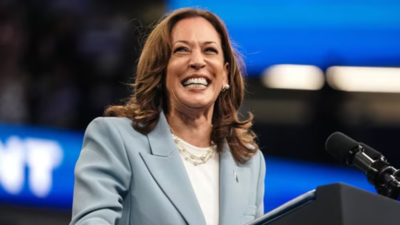
The world is on the brink of witnessing one of the most significant elections in recent history. Will it be Republican candidate Donald Trump, who served as president from 2017 to 2021, or Democratic candidate Kamala Harris, the current vice president of the United States? The answer will be revealed on November 5, 2024. Regardless of the outcome, the election will bring substantial changes across various sectors, including education.
Today, we delve into a critical yet often overlooked question: What will happen to the U.S.education system if Kamala Harris becomes president? In recent years, Harris has proposed a number of measures to reform education—ideas that stand in stark contrast to those of her opponent, Donald Trump. Let’s explore what her presidency could mean for students, teachers, and the future of American education.
Student debt relief: A major policy focus
Higher education in the U.S. is notoriously expensive, resulting in a ballooning student loan debt crisis that has become a pressing issue. Over the past four decades, the cost of college has more than doubled, placing immense financial strain on students. President Joe Biden, with Harris as his vice president, vowed to tackle this issue by pushing for widespread student loan forgiveness. While their administration has faced significant roadblocks, including a Supreme Court rejection of Biden’s sweeping proposal to forgive debt for over 40 million borrowers, some progress has been made. Recently, the Biden administration canceled $4.5 billion in student debt for nearly 60,000 workers.
If Kamala Harris were to become president, it’s likely that her administration would intensify efforts in this area, continuing the fight for broader student debt relief and addressing the financial burden millions of Americans face in their pursuit of higher education.
Teaching about race, gender, and LGBTQ+ issues
One of the most contentious debates in American education revolves around when, and how, students should be introduced to topics such as race, sexuality, gender, and the transgender experience. While many teachers, parents, and students agree that racism should be openly discussed in schools, opinions on LGBTQ+ issues are more divided. Some educators believe these topics are crucial for fostering understanding and inclusivity, while others argue they do not belong in the school curriculum.
Kamala Harris has consistently voiced her opposition to efforts that limit how race and gender are taught in schools. She has labeled proponents of such restrictions as extremists, accusing them of refusing to “acknowledge our nation’s true and full history.” Harris has also been a vocal critic of laws banning books that address LGBTQ+ issues and legislation that restricts teachers from discussing gender identity in the classroom. During her 2023 ‘Fight for Our Freedoms’ campaign, Harris condemned these laws, stating, “It is incumbent on us who believe in the strength of diversity and the importance of unity to build coalitions… including on the issue of what is happening in terms of attacks against trans folks and the LGBTQ community as a whole,” suggest media reports.
Under the Biden-Harris administration, federal protections for LGBTQ+ students were expanded under Title IX, which prohibits sex discrimination in all university programs and activities. Harris has also opposed state laws that prevent transgender individuals from using bathrooms that align with their gender identity, calling such policies discriminatory.
If Harris takes office, we can expect her to further champion the rights of LGBTQ+ and transgender students, advocating for inclusive and supportive public school environments.
Beyond her focus on student debt relief and LGBTQ+ rights, Harris has indicated a commitment to improving the overall quality of public education in the U.S. Her approach would likely include strengthening public schools, ensuring they are well-funded, and promoting policies that foster diversity and inclusivity in education. This could also mean opposing legislation that limits teachers’ ability to engage students in discussions about race, gender, and history, which she views as essential to a comprehensive education.
In conclusion, if Kamala Harris becomes president, we can expect her to push for major reforms in the education system, from expanding student debt relief to promoting inclusive policies that support LGBTQ+ students. Her presidency would likely be marked by a strong commitment to diversity, equity, and making education more accessible and inclusive for all.

